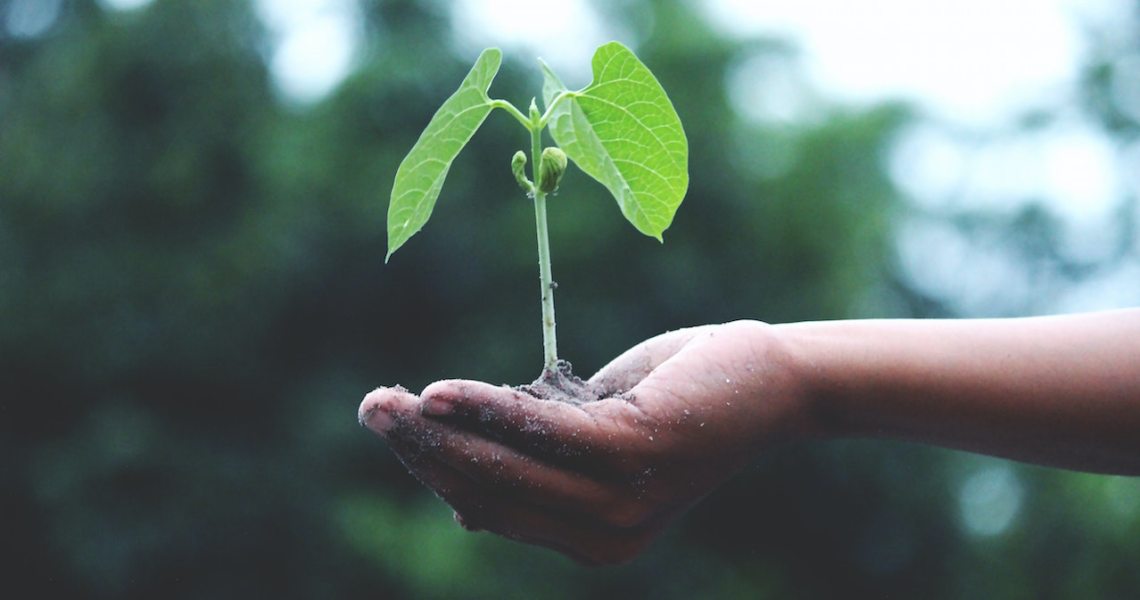Coronavirus has wreaked havoc on the global economy, but its impact on sustainability efforts has been more mixed.
Over the past two months, there have been lighthearted reports of jellyfish swimming in the Venice canals, where the water has cleared up due to a reduction in boat traffic and pollution, and goats running amok in a town virtually abandoned by humans. There have been reports that babies are likely to be born healthier in cities like Beijing as air quality has improved. There’s also a new “nature is healing” meme that mocks the fabricated news stories around the topic. But the pandemic has also reintroduced single-use plastic bags and proliferated the use of plastic latex gloves. What’s more, as The Atlantic reported, sustainability historically takes a hit when economies reemerge from pandemics.
The conflicting reports on the current and future status of the environment leave industries like beauty in a conundrum. Influential players have repeatedly stated commitments to sustainability in recent years, although these efforts are arguably facile given the 153 billion units of plastic the industry produced in 2018. But the new normal of the pandemic provides the opportunity to reset not only to cultural values and social norms, but also business priorities. Sustainability plans could be thrown out the window to save on production and margins, though there have been no confirmations that this has occurred, but it could also be an opportunity to focus on the “reduce” component of “reduce, reuse, recycle.”
“Sustainability will be much more important,” said Sylvie Chantecaille, founder of Chantecaille. “People are going to think more [about their consumption] because they have time at home to think and to realize what is essential.”
Chantecaille previously told Glossy that she is working for the first time to develop paper compacts using post-consumer recycled paper for future products, and is planning to get rid of makeup bags that come as a gift with purchase and also reduce all printed materials. Randi Christiansen, Necessaire co-founder, echoed Chantecaille’s sentiment that people are becoming more conscious of reducing consumption as a result of slowing down. “Awareness is the first step to change,” she said. Nicola Kilner, Deciem co-founder and CEO, said during a recent Glossy+ Talks that she predicts people will begin to notice the negative impact that mass online shopping and delivery will have on the environment. Kilner is monitoring this to inform the company’s future omnichannel strategy.
“It starts really with reducing packaging as much as possible, and then looking at materials and seeing if can we use materials that have a positive impact on the planet,” said Walter Faulstroh, co-founder and CEO of Hum Nutrition.
Hum Nutrition’s bottles and caps have been fully recyclable since the brand’s launch in 2012, and the bottles have never had additional external packaging. On Earth Day, Hum announced its transition to ocean-bound plastic, which is sourced from areas where items could end up in the ocean. Faulstroh declined to mention the name of the plastic partner, but according to the FDA, it costs about 20 cents more per pound to source ocean-bound plastic than domestically sourced scrap plastic. Hum will start talking to customers more in-depth about the new material and what it means via social media once products enter the market at the end of 2021. After the implementation of ocean-bound plastic, Hum will make the foray into a fully circular economy in which packaging is never wasted or required to be recycled because it can be reused as it is. Hum has contracted with sustainable product design studio Better Future Factory to help it identify additional sustainable opportunities and achieve its goals.
Ad position: web_incontent_pos1
“When I saw what has happened with this global pandemic, I felt even more strongly about sustainability, and we need to act faster, rather than slower,” said Faulstroh. “The pandemic highlights how we connect on this planet and how one action in one country impacts the action of another.”
At the same time, Faulstroh concedes that it is not possible to predict the future of sustainability and said it is up to the consumer to support sustainable brands. But this leads to the question of where sustainability falls among beauty consumers’ priorities.
“Sustainability is at the top of mind for a lot of people,” said Michael Bryce, founder of Healist Advanced Naturals, a CBD ingestible and skin-care brand that launched in April. “But, I don’t think that’s going to be your primary purpose for buying a brand; first and foremost, you’re going to buy a brand if it works. Unless you can deliver on the quality and efficacy of the product, you’re not going to move the needle on a purchasing decision whether you are sustainable or not.”
Healist has built sustainability into the ethos of the brand from the start, using 100% recyclable packaging and soy-based ink, and it will transition to ocean-waste plastic bottles by the end of the year. He said ocean-waste plastic is double the cost of virgin plastic. The brand meant to launch with ocean-waste plastic bottles (which is plastic sourced from waterways), but supply chain issues delayed this, Bryce said. As a month-old brand, the priorities are on building awareness and demonstrating the benefits and quality of the products. Sustainability remains, therefore, a subtle and ongoing discussion around brand values, rather than as a driver to purchase.




